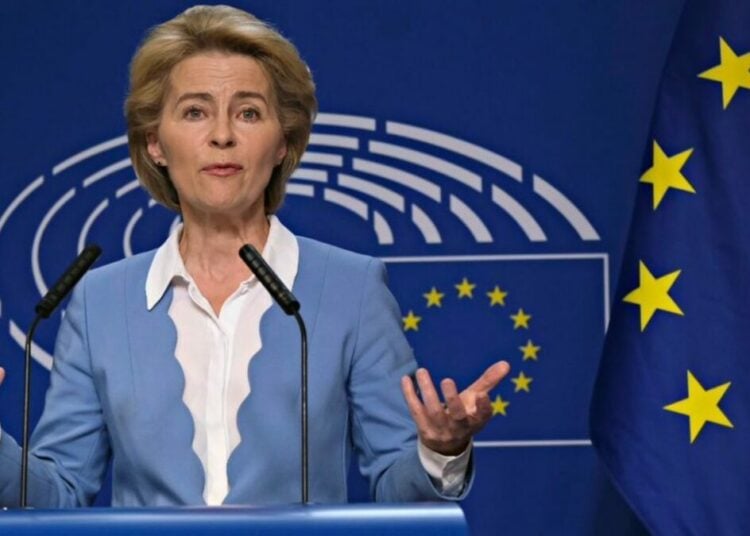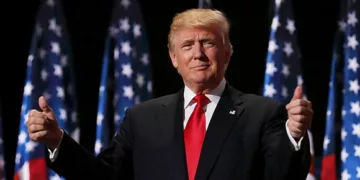A plane carrying European Union Commission President, Ursula von der Leyen, was struck by suspected Russian GPS jamming as it prepared to land in Bulgaria, the European Commission confirmed on Monday.
The incident occurred on Sunday as von der Leyen’s chartered flight approached Plovdiv International Airport in southern Bulgaria. Although the satellite navigation system was disrupted, the plane landed safely using alternative terrestrial navigation methods.
“We can indeed confirm that there was GPS jamming,” EU Commission spokeswoman Arianna Podesta told reporters at a press briefing in Brussels.
Bulgarian authorities have blamed Moscow for the interference. “During the flight carrying European Commission President Ursula von der Leyen to Plovdiv, the satellite signal transmitting information to the plane’s GPS navigation system was neutralised,” a government statement said. “To ensure the flight’s safety, air control services immediately offered an alternative landing method using terrestrial navigation tools.”
The Financial Times, which first reported the incident, said the pilots had to rely on paper maps to complete the landing.
Podesta said the jamming fits a wider pattern of hybrid threats linked to Moscow. “The Bulgarian authorities suspect this blatant interference was carried out by Russia,” she noted, adding that “threats and intimidations” were “a regular component of Russia’s hostile behaviour.”
A separate EU spokesperson highlighted that such GPS disruptions and spoofing activities were increasingly common in Eastern Europe, particularly in states bordering Russia and Belarus. The bloc has sanctioned several companies allegedly involved in such operations.
Von der Leyen, 66, was in Bulgaria as part of a seven-country tour of “frontline” EU member-states, which are considered more vulnerable to Russian interference. The trip was described by the Commission as a demonstration of solidarity with nations “facing the challenges” of proximity to Russia and its ally Belarus.
“Of course, this will only reinforce even further our unshakable commitment to ramp up defence capabilities and support for Ukraine,” Podesta added.
The incident came as Western powers debate long-term security guarantees for Ukraine in case of a truce in the three-and-a-half-year war with Russia. Despite US President Donald Trump’s renewed push for dialogue with Moscow at the start of his second presidency, peace efforts have stalled, with Russia showing little interest in direct talks with Ukrainian President Volodymyr Zelensky.











